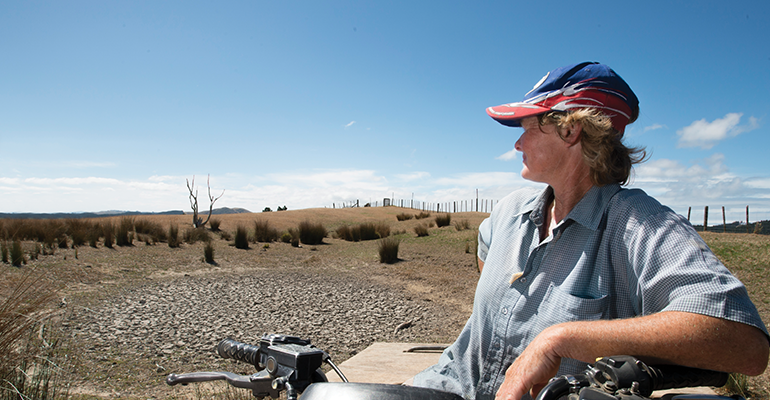- Impacts & Adaptation
Research Programme
- Anne-Gaelle Ausseil
Manaaki Whenua Landcare Research - View the full team
Project Lead
-
Budget
$450,000 -
Duration
March 2017-August 2019
-
Completed project
Climate change & its effect on our agricultural land
Land-use suitability: incorporating climate change impacts
The primary sector has been a key part of New Zealand’s growth for a long time. Agriculture, forestry and fishing are all central to our modern economy.

In the past, a piece of land’s suitability for agriculture was measured by its capacity for sustained production. That’s no longer enough – climate change has the potential to drastically affect the viability of land for use in agriculture and other primary industries. Land once suitable for farming may be rendered unusable by the effects of climate change or extreme weather events. There’s also an increasing need to account for more than productivity when deciding whether land is appropriate for agricultural use. Economic, environmental, social and cultural values are all affected by the choice to use a piece of land for agriculture.
The aim of this research project, now complete, was firstly to better understand the impact climate change will have on the land’s suitability. Will previously productive pieces of agricultural land become unsuitable? Why? Secondly, we sought to understand the flow-on effects of these changes to land use. What will the economic impact be if lots of land becomes unsuitable for agriculture? How will we adapt?
In studying the causes and effects of changing land use, we can enable those who work in the primary industries to make informed decisions. We have developed a conceptual framework to understand the effect of climate change on land-use suitability, and are using this to create an operational forecasting tool. By incorporating the effects of climate change into their decision making, our primary sector can make effective choices while still meeting soil, water quality and economic objectives.
This project was jointly funded with the Our Land and Water National Science Challenge and with the Ministry for Primary Industries.
This project in the media:
PROJECT TEAM
-
Anne-Gaelle Ausseil
Manaaki Whenua Landcare Research -
Mike Beare
Lincoln University -
Tony van der Weerden
AgResearch NZ -
Troy Baisden
University of Waikato -
Iris Vogeler
Ag Research -
Liz Keller
GNS Science -
Stephen Flood
Manaaki Whenua Landcare Research -
Nicholas Cradock-Henry
Manaaki Whenua Landcare Research -
Edmar Teixeira
New Zealand Institute for Plant & Food Research Ltd -
Andrew Sturman
University of Canterbury